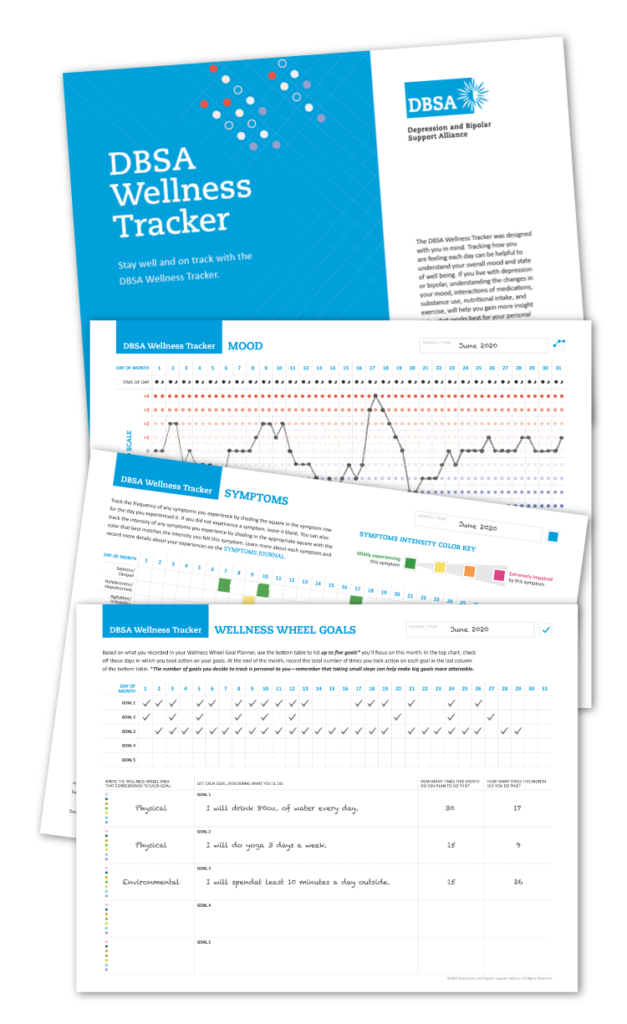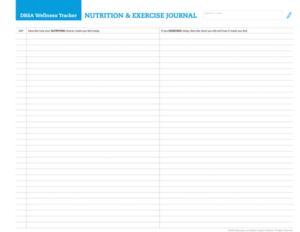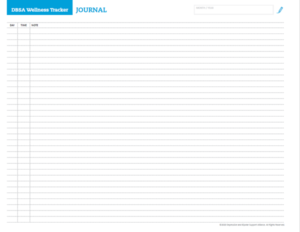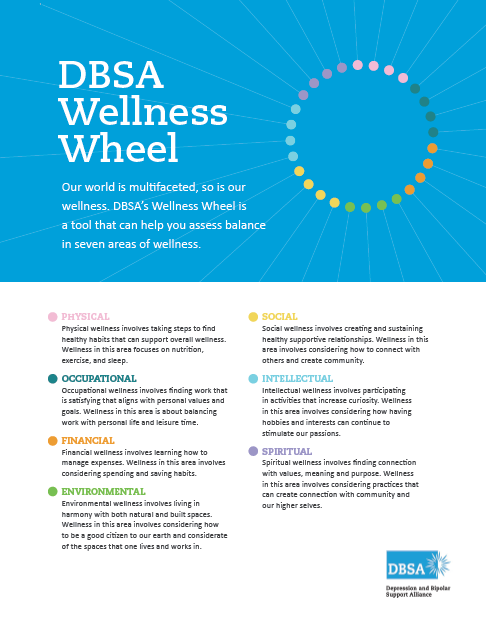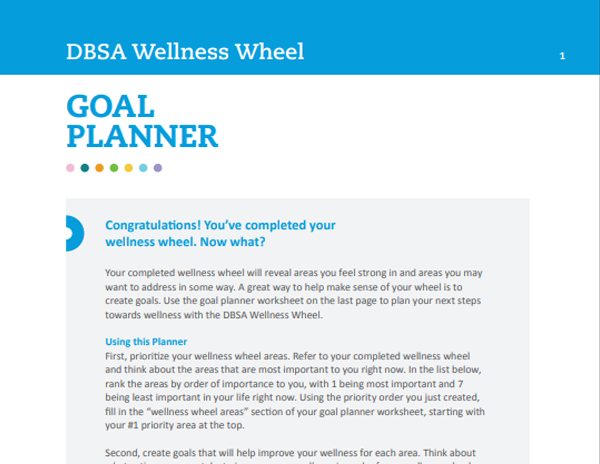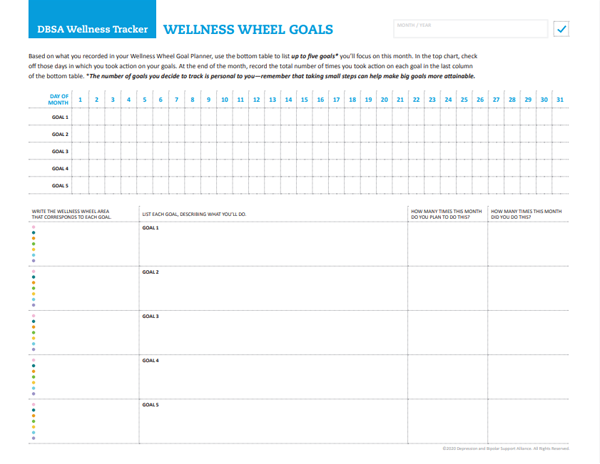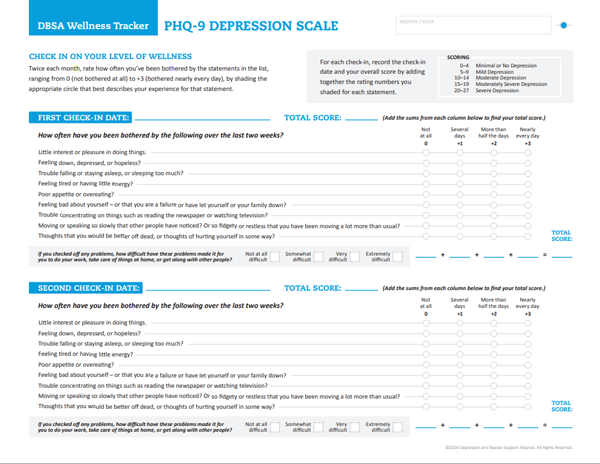We know wellness is not one-size-fits-all.
The DBSA Wellness Tracker consists of one main Mood Tracker and seven supporting symptoms, behavior, and lifestyle trackers designed to work together to give you an overall picture of your wellness.
This wellness tracker was designed to be used in a way that will work best for you; use all of the sheets or just some of them to begin your wellness journey. See individual sheets below.
Tracker Components
Tracking moods, symptoms, medications, and lifestyle everyday will give you a visual representation of your wellness for the month.
Journals
The purpose of the journals is to record any significant experiences or details about what you’ve tracked that might later help you interpret your mood graph.
Wellness isn’t just about tracking symptoms.
DBSA believes that wellness encompasses an individual’s whole life. The DBSA Wellness Wheel explores wellness in 7 key areas: Social, Physical, Occupational, Spiritual, Intellectual, Environmental, and Financial. Therefore, we created this special goal planning and tracking tool to tie these 7 areas of wellness to the DBSA Wellness Tracker. If you haven’t already, download the DBSA Wellness Wheel Workbook to see which of the 7 areas of wellness you’d like to create goals around.
PHQ-9 Depression Scale
The PHQ-9 is the nine-item depression scale of the Patient Health Questionnaire. You can complete the PHQ-9 twice monthly as a way to check in with yourself or to discuss with your mental health professional.
Note: It is important to remember that this is only an assessment and not a diagnosis. We encourage you to discuss scores with your mental health professional.


